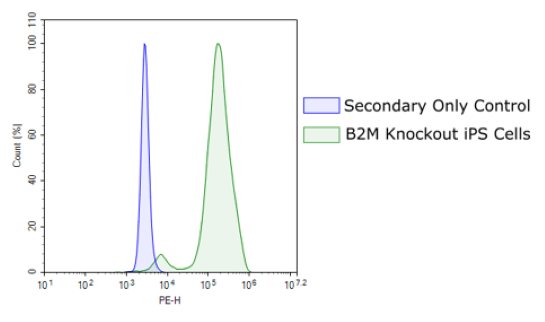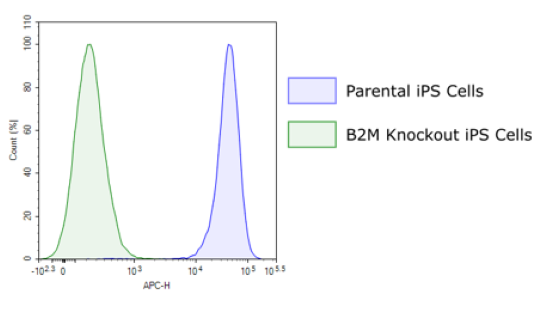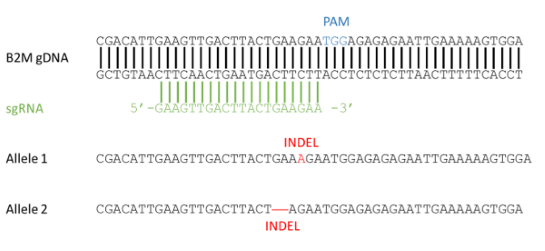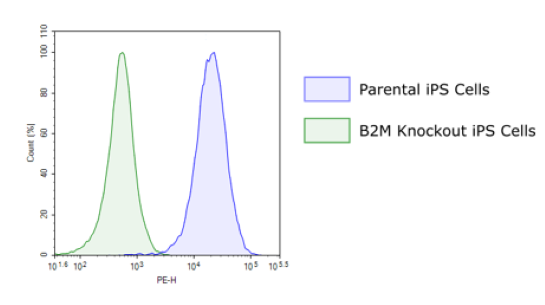B2M Knockout iPS Cell Line
The B2M Knockout iPS Cell Line is an iPS cell line that has been edited using CRISPR/Cas9 technology to delete B2M (Beta-2-Microglobulin) gene expression. The B2M-targeting CRISPR/Cas9 editing agents were delivered via transduction with B2M (Human) CRISPR/Cas9 Lentivirus (Non-Integrating) (BPS Bioscience #78341).
Purchase of this cell line is for research purposes only; commercial use requires a separate license. View the full terms and conditions.
Media Required for Cell Culture
| Name | Ordering Information |
| mTeSR™ Plus | Stem Cell Technologies #100-0276 |
| Matrigel™ | Corning #354230 |
| DMEM/F12 | Thermo Fisher #11330032 |
| Thiazovivin | BPS Bioscience #78506 |
| RelesR | Stem Cell Technologies #05872 |
| Accutase | Thermo Fisher #A1110501 |
The cell line has been screened to confirm the absence of Mycoplasma species.
The discovery by Yamanaka and colleagues in 2007 that 4 factors were sufficient to reprogram terminally differentiated fibroblasts into pluripotent stem cells launched the advent of human induced pluripotent stem (iPS) cell technology. These human iPS cells are capable of both self-renewal and differentiation down all three germline lineages and provide both a tool to model human development and disease in the relevant differentiated human cell types, and a unique opportunity for high throughput drug screening and cell therapy development.
B2M (Beta-2-Microglobulin) forms a heteromeric complex with HLA-A, HLA-B and HLA-C molecules to generate the functional Class I MHC molecule responsible for antigen presentation to T-Cells. Class I MHC molecules are present on the surface of all nucleated cells and play a role in the rejection of organs or allogenic cells during organ transplantation and cell therapy. B2M is an attractive target to reduce the immunogenicity of iPS cell-derived allogenic cell therapies.
Cong L., et al., 2013 Science. 339(6121):819-23.
Gerace D., et al., 2023 Cell Reports Medicine 4: 100879
Jinek M., et al., 2012 Science. 337(6096):816-21.
Mali P., et al., 2013 Science. 339(6121):823-6.
Lanza R., et al., 2019 Nat Rev Immunol 19: 723-733.
Takahashi K., et al., 2007 Cell. 131(5):861–872.
Yang L., et al., 2013 Nucleic Acids Res. 41(19):9049-61





